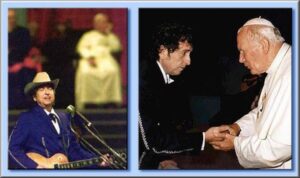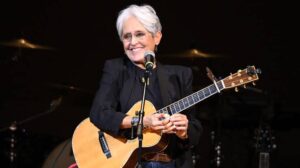BREAKING: Jon Gruden confirms guilty and set for further actions after judgement passed

NFL ATTORNEY BLASTS JON GRUDEN’S CASE IN NEVADA SUPREME COURT
On Wednesday, three justices on the Supreme Court of Nevada presided over an oral argument pitting an attorney for the NFL and commissioner Roger Goodell against an attorney for former Las Vegas Raiders head coach Jon Gruden.
Chief Justice Elissa F. Cadish, along with Justice Kristina Pickering and Justice Linda Marie Bell, presided over the hearing, which lasted a little over a half hour and centered on Gruden, who coached in the NFL for decades, apparently not knowing about the contours of league arbitration when he signed his 10-year, $100 million contract with the Raiders in 2018.
Kannon Shanmugam, the chair of the Supreme Court and Appellate Litigation Practice at Paul, Weiss and a former clerk to the late U.S. Supreme Court Justice Antonin Scalia, argued for the NFL. He urged the court to reverse a ruling by Clark County (Nev.) District Court Judge Nancy Allf from 2022 that denied the NFL’s motion to compel arbitration for Gruden’s lawsuit. Gruden accuses the league and Goodell of negligence and intentionally interfering with his contract.
Shanmugam said “there is no meat on the bones” to Gruden’s factual claim that in 2021, Goodell orchestrated a leak of insensitive emails Gruden wrote as an ESPN employee in 2011. Shanmugam said the allegations are “threadbare.” He blamed Gruden for writing racist, homophobic and misogynistic comments “too vile to read in open court” and that Gruden “probably” circulated what he wrote on his own.

Shanmugam then turned to the role of arbitration and Gruden’s awareness of it. As explained by Sportico earlier Wednesday, Gruden’s employment contract contained language that stated he agreed to the league constitution and its provisions, which include Goodell possessing exclusive jurisdiction to arbitrate any dispute involving a team employee that Goodell regards as detrimental to the league.
Gruden, Shanmugam asserted, affirmed he understood the Raiders contract’s terms by signing it. Shanmugam also stressed Gruden “was the very definition of a sophisticated party” to this contract given his familiarity with the NFL—Gruden landed his first job with an NFL team in 1990—and that he was represented by a seasoned agent.
Justice Bell pushed back a bit, asking how Goodell could be the arbitrator of a dispute where Goodell is the accused wrongdoer. Chief Justice Cadish similarly wondered about “due process” when a dispute is decided by someone who is the alleged cause of the dispute. They suggested the setup defied common sense and basic legal principles.
Shanmugam responded by saying in the “context” of pro sports leagues, it’s customary for the commissioner to handle disputes, even those implicating commissioners and the leagues. Shanmugam added that he suspects Goodell would “designate someone else as the arbitrator,” since if Goodell decided Gruden’s grievance, he “would be exposing himself” to an allegation he was “acting out of bias.” But Shanmugam stressed “that is an unripe” consideration at this time, because Gruden could later petition a federal court to vacate a ruling by Goodell as an arbitrator on grounds of bias. In other words, if Gruden objects to Goodell as the arbitrator for his dispute, the time to raise that objection is after Goodell serves as the arbitrator and issues a decision.
Adam Hosmer-Henner, the chair of the Appellate Practice Group at McDonald Carano, argued for Gruden. He claimed “Gruden never saw” arbitration language from the league constitution and even if he had, “he could not have changed it.” The justices asked Hosmer-Henner if Gruden “had counsel” in negotiating the Raiders contract, to which the attorney surprisingly said, “No, he did not.” Hosmer-Henner added that “these contracts are negotiated in a matter of hours,” and that Gruden “was never provided a copy of the NFL constitution.”
The justices seemed unpersuaded that Gruden, who coached the Tampa Bay Buccaneers to victory in Super Bowl XXXVII (2003) and whose father (Jim) and brother (Jay) also have longstanding ties to the NFL, was naïve when he signed the Raiders contract as a 54-year-old. The justices noted case law involving consumers who download apps and lost lawsuits challenged arbitration provisions for those apps. Hosmer-Henner insisted Gruden wasn’t provided the arbitration language at the time of signing—but the justices then observed that “not being provided” is not the same as “not being available.”
To that point, Shanmugam added the NFL constitution is readily available on the Internet. “If you type ‘NFL constitution’ into Google,” Shanmugam said, “it’s the first search that comes up.”
Hosmer-Henner, however, maintained that the arbitration clause itself is unconscionable in this situation, because there is—he said—no limiting principle. He referenced a hypothetical the justices had introduced where Goodell decides to punish a player or team employee for a controversy-inducing divorce. Shanmugam suggested the hypothetical was off-topic and irrelevant since it does not involve an employment dispute.
The justices will issue an opinion in the next several weeks or months.






